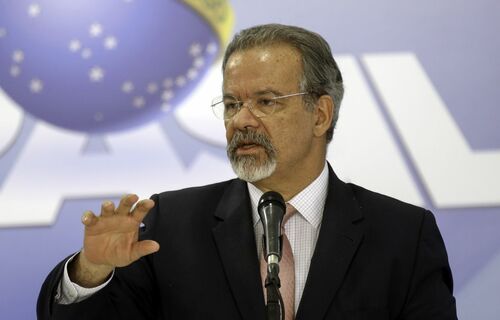BRASILIA, (Reuters) – Brazil’s government is taking a fresh tack in its effort to crack down on illegal gold mining in the Amazon, preparing legislation that would require electronic tax receipts for the buying and selling of the precious metal, four sources with knowledge of the plans said.
President Luiz Inacio Lula da Silva wants to end years of environmental backsliding under his far-right predecessor, Jair Bolsonaro, and crack down on illegal mining in the Amazon.
Lula has also pledged to end deforestation, which surged to a 15-year-high under Bolsonaro, and take better care of indigenous populations in the Amazon who are threatened by armed, disease-carrying wildcat miners.
A draft for a temporary decree seen by Reuters on Wednesday proposed new rules for the purchase, sale and transport of gold will be established.
According to the proposal, which enjoys the support of Brazil’s Ibram mining lobby, gold coming from wildcat mining would be considered a financial asset that must be initially bought by an institution or brokerage authorized by Brazil’s central bank.
Currently, gold is sold with paper receipts based on the “good faith” of the seller, making it impossible to trace its origin.
The electronic receipt, called “nota fiscal” in Portuguese, must identify the name and tax number of the seller, the mine where the gold was extracted, as well as the authorization number of the license for the mine.
The central bank and other government agencies have been studying the adoption of the electronic tax receipts for buying and selling gold in order to track whether it was illegally mined, the bank said in documents published on Monday.
The central bank said the goal was to implement “a new inspection system that allows the traceability of the gold extracted, as well as the adoption of electronic invoices.”
Around half of the 100 tonnes of gold produced each year by Brazil is thought to be illegally mined and laundered by financial brokerages that are regulated by the central bank, according to mining industry lobby group Ibram. The situation is so bad, Ibram says, that even the central bank does not know if the gold it buys is legal or illegal.
The mining lobby has been calling for the adoption of electronic invoices to end the illegal gold trade, Ibram President Raul Jungmann told Reuters.
Jungmann, whose lobby represents multinational and large domestic mining firms operating in Brazil, has called on the government to take steps to break a network that launders illegal gold through the financial system for sale to buyers in countries like Switzerland and Britain.
Brazil’s new leftist government last week launched an enforcement operation to remove some 20,000 wildcat miners from the Yanomami reservation on the border with Venezuela after declaring a medical emergency due to deaths from malnutrition.
The miners devastated much of the vast reservation, polluting rivers with mercury, terrorizing the Yanomami with sickness and famine by hunting their game and bringing in disease.






